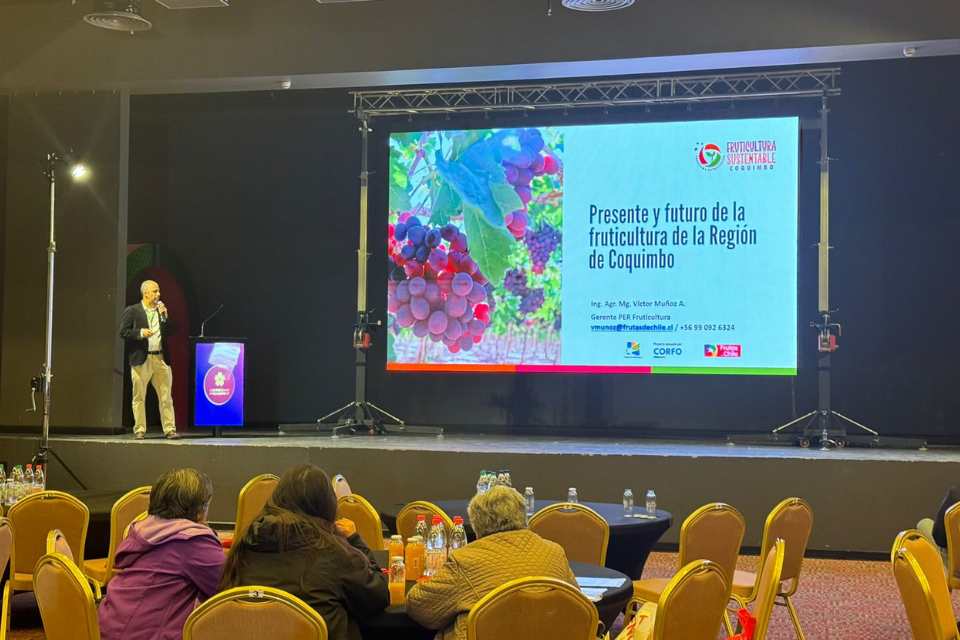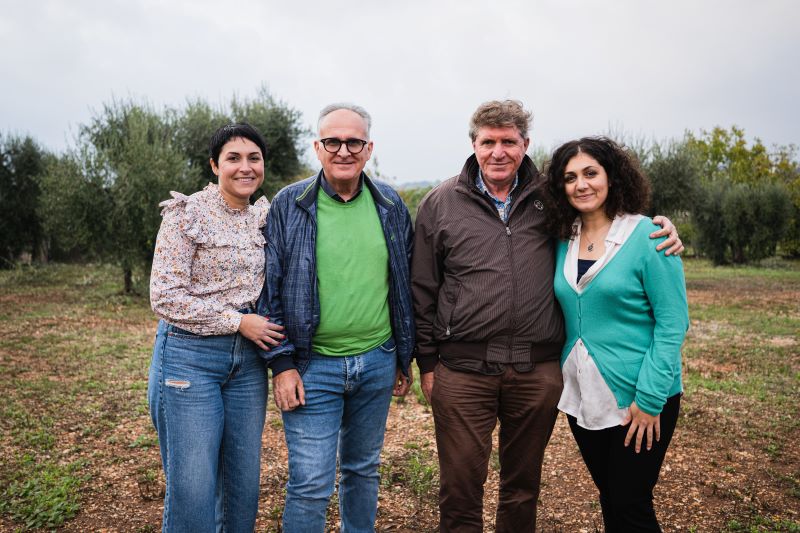Giovanni Quercia is a family-run business located in Bisceglie (Apulia). The business manages a total of 120 hectares, of which 105 hectares are olive groves and the remaining 15 are entirely dedicated to cherry production. For Cherry Times, farm owner Giovanni Quercia spoke.
How did the history of your company start?
The land has always been in the family. In 1973, some relatives put it up for sale and I bought it to start the business. At the time we only had 2 hectares and we have worked hard all these years to reach the 120 hectares we have now. Today, the farm is run on a family basis, together with my wife and two of my sons.
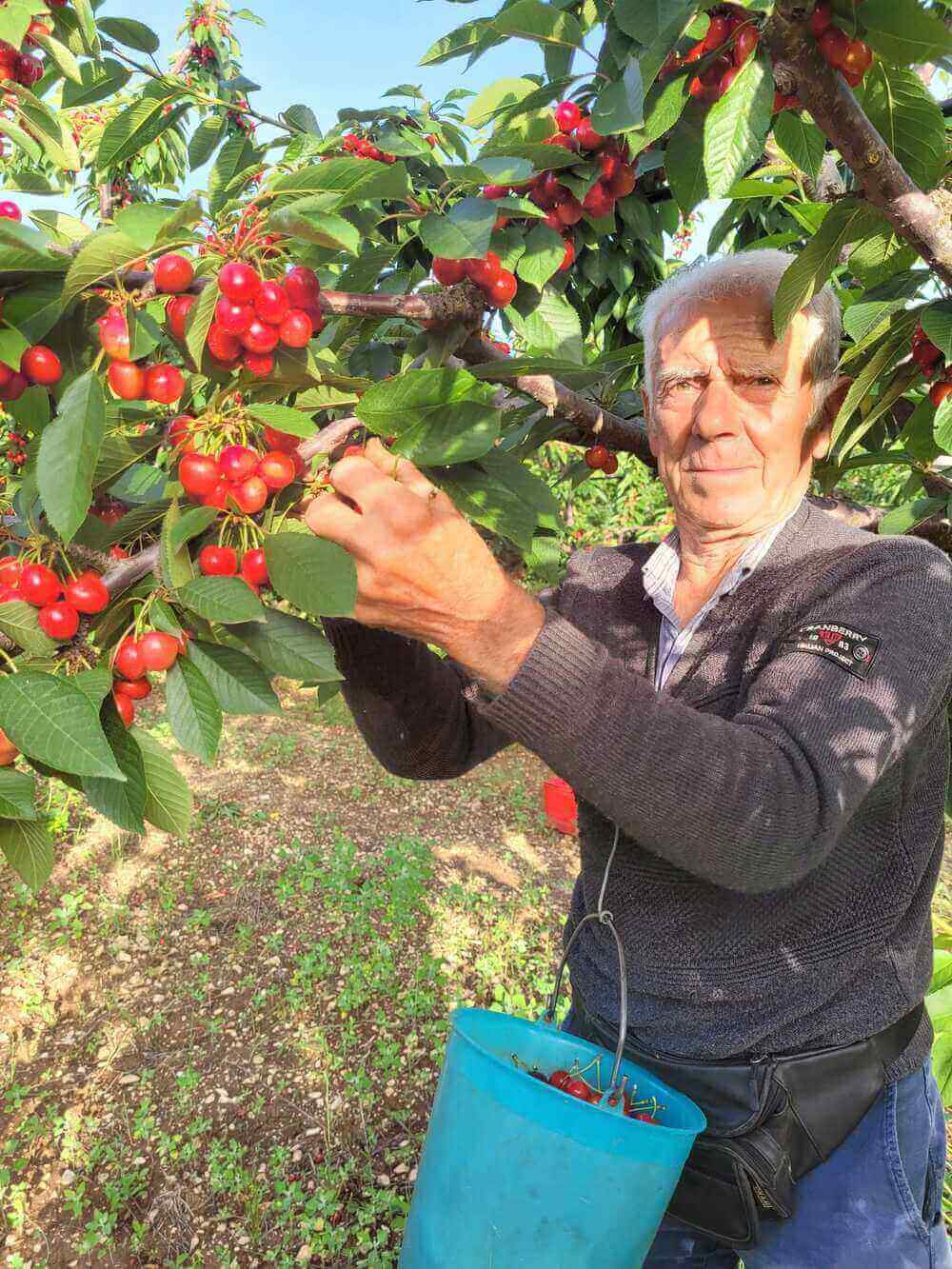 Giovanni Quercia.
Giovanni Quercia.
You own 15 hectares of cherry orchards. What variety choices have you made?
As far as varieties are concerned, we have decided to focus on early and medium-early varieties. Some of the varieties, to a lesser extent, are among the most common in the area, such as Grace Star or Giorgia. If we talk about Grace Star, we can say that it is having a remarkable success in the last period, even though it is one of the more tender varieties.
Talking about Giorgia, on the other hand, we have to say that unfortunately it is not having an easy time lately, in these areas many farmers are slowly replacing it with more heat-resistant varieties. With the climate we have here the plant unfortunately suffers too much damage.
The other part of the cherry orchard, most of it actually, is covered by the Sweet series varieties, such as Sweet Aryana, Sweet Lorenz and Sweet Gabriel. We are talking about very good varieties that really give a very good product.
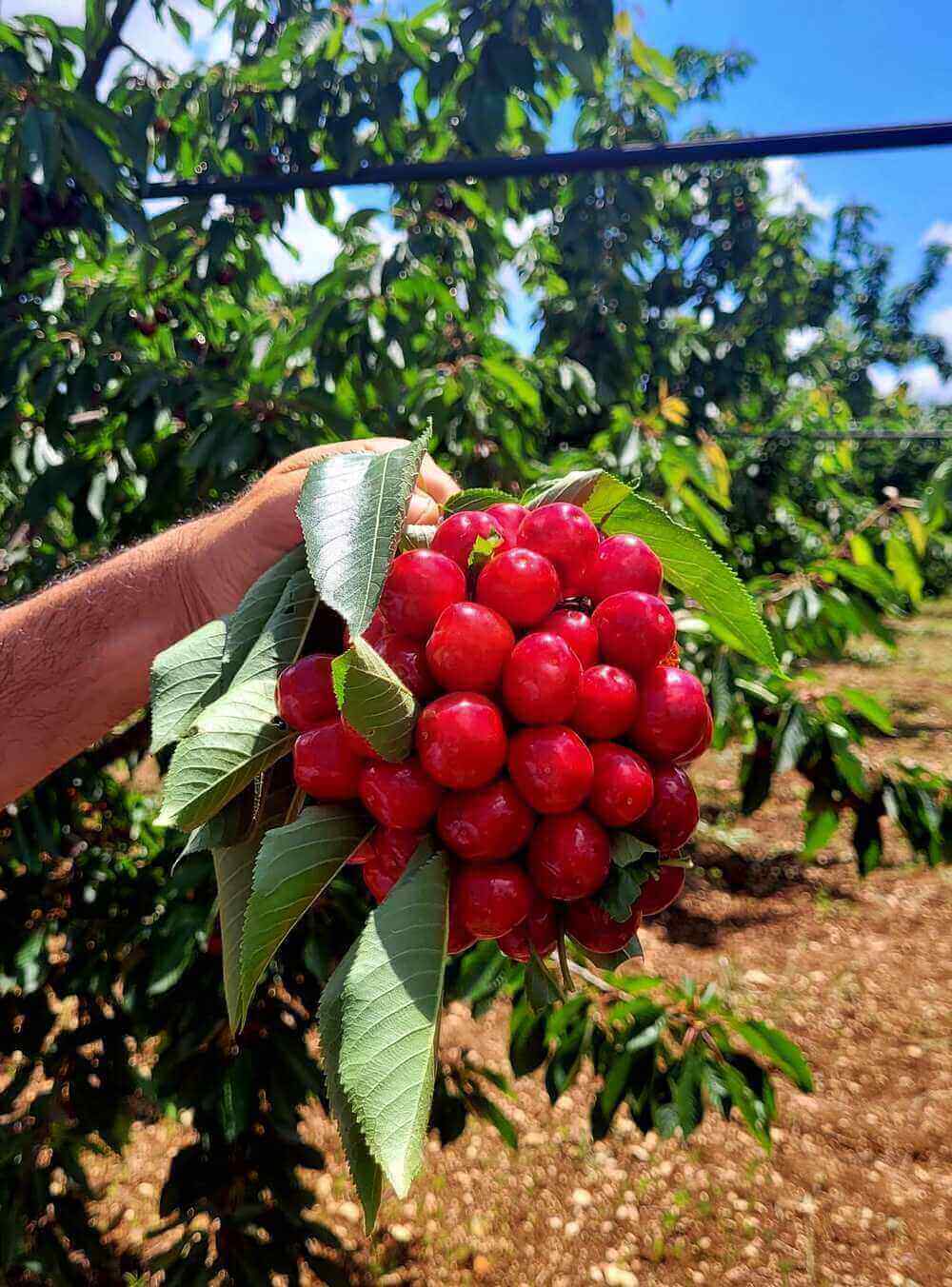
On the early varieties we focused a lot on Sweet Aryana, but unfortunately it was the one that had the most cracking problems. This was due to the moisture which, even if not excessive, gave problems with cracking. Fortunately, the other varieties gave no such problems.
Another variety of Stefano Lugli's that really amazed us was Sweet Marisa. We have to say that it is a bit tender, but we are really talking about a beautiful cherry and an excellent product. As a variety, it has a high rate of fruit set, and pruned correctly, not too much, it really leads to good size.

In addition to these varieties, we have others spread over one hectare in the Murge area. Here we have other varieties such as Lapis, Ferrovia and Staccato. Last year, unfortunately, we were not able to harvest much in that area; this year, on the other hand, we had very good results and were able to harvest the whole crop.
Although I must say that in that area the ripening period, conditioned by the colder climate, is not exactly congenial. In fact, the plants ripen about 7 days later and overlap with the ripening period in other regions and we suffer a bit from competition. For example, Sweet Marisa ripens around the 20th of May, while Ferrovia starts from the 27th of May.
Let's say that if we tend to start harvesting in Bisceglie around 27/28 April, in the Murge area we start in early June.
Regarding the installation, do you use covers? Or have you adopted other solutions?
As far as we are concerned, we do not use covers of any kind, neither rain covers nor anti-hail covers. We do not even use insect-proof ones. The problem with today's covers is that, while they bring great benefits and protection to cultivation, they are a real investment, and not a small one.
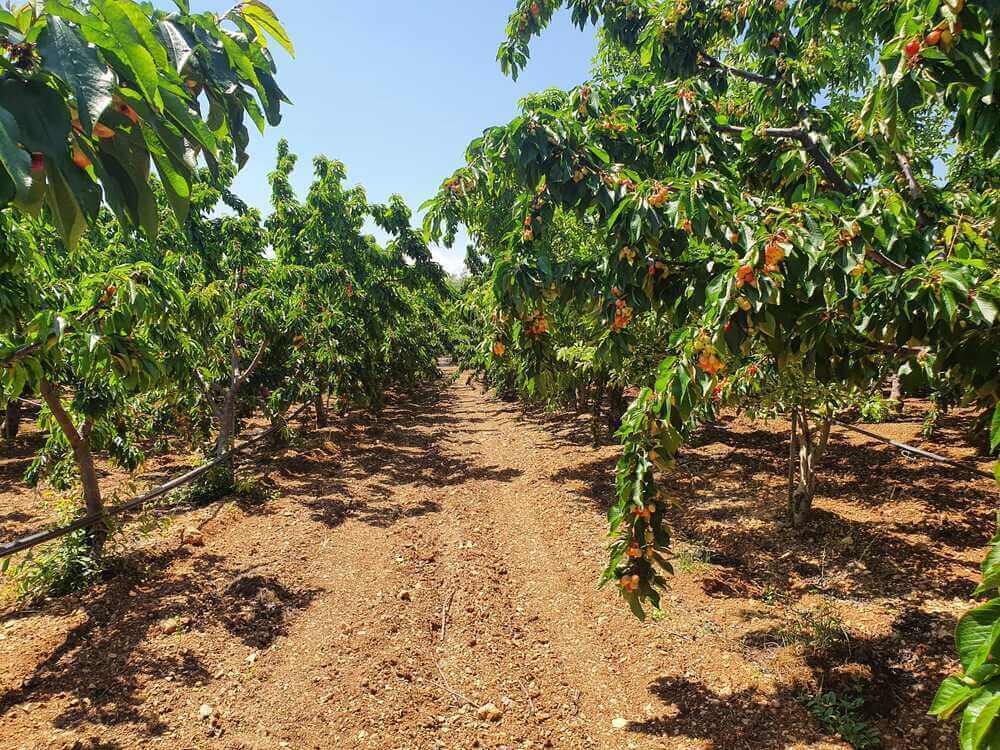
What critical issues are you seeing to date?
I have to say that we tend not to have any major problems. If I had to point out a few, however, I would definitely say Armillaria, which as we all know is a devastating fungus for plants. Lately we have noticed an increase in this phenomenon and we are trying to work on limiting it. On the contrary, fortunately, we have not had any problems with Drosophila, which, as we know, has really given northern Italy a run for its money.
Another classic problem, which can be solved but not always, is that of manpower. Our areas need at least 15 people for the season. We can rely on the family, but we necessarily need more people. Unfortunately, we cannot even refer to cooperatives or agencies, they are not present in this area, so we are forced to use other methods.
Cherry Times - All rights reserved









